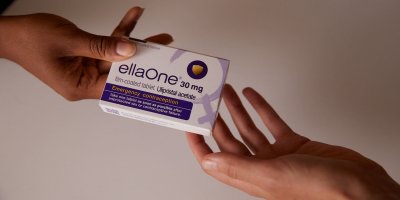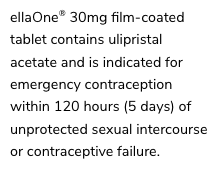How Do I Know Whether The Morning After Pill Has Worked?
Whether you’ve missed your birth control pills, a condom has split, or you forgot to use contraception altogether: accidents can happen to anyone. If you’ve had unprotected sex, the morning after pill can help prevent an unplanned pregnancy.
So, you’ve braved the walk to the pharmacy, approached the counter, asked for the morning after pill and taken it. Now what? How do you know if the emergency contraceptive pill has worked?
There’s a lot riding on one little pill, so it’s only natural for you to have a lot of questions: from how it works to if it will affect your body. Read on to find out how you can know if the morning after pill has worked.
Does the morning after pill always work?
The morning after pill works by delaying ovulation which means that no egg will be released and any lingering sperm will have nothing to fertilise.
Sperm can survive in the female reproductive system for up to five days, so even if you don’t think you’re about to ovulate you could still become pregnant if you ovulate up to five days after unprotected sex.
“If you have had unprotected sex, then it’s understandable that you may be worried and anxious about getting pregnant. However, taking the morning after pill as soon as possible can reduce your risk of pregnancy,” says Deborah Evans**, a pharmacist with over 30 years experience.
No other morning after pill is more effective than ellaOne. A clinical trial found that there is only a 9 in 1000 chance that you could get pregnant if you take ellaOne within 24 hours after unprotected sex.
You can also get a copper intrauterine device (IUD) fitted as a form of emergency contraception if you can get it fitted within 120 hours of unprotected sex. As you have to wait for an appointment to get this fitted by a doctor or nurse, you may be advised to also use an emergency contraceptive pill for the best chance of preventing pregnancy.
How do you know if the morning after pill has worked?
The only way to know that the morning after pill has definitely worked is for your next period to arrive. This might not be what you wanted to hear, but it’s important not to panic.
It is a good idea to get to know your menstrual cycle. Your cycle is more than just your period and understanding it can help you to spot the signs for when your period is due and can make it easier to tell when it’s late – and when you may be about to ovulate.
The morning after pill can sometimes delay your period by up to seven days. This is a common side effect and is usually no cause for concern. If your period is late by more than seven days, you should take a pregnancy test. Other signs of pregnancy to look out for include feeling or being sick, tiredness, breast tenderness or soreness and needing to pee more often.
Where can I get the morning after pill?
You can get the morning after pill from a pharmacy, a GP, a sexual health clinic or you can buy it online to collect in store. A healthcare professional will need to ask you a few questions about when the unprotected sex took place, and your medical history, just to check that this medicine is suitable for you.
Want to find out more about how to buy ellaOne, no other morning after pill is more effective. You can find everything you need to know about buying ellaOne online or in a pharmacy here.
When should you do a pregnancy test after taking the morning after pill?
Taking a pregnancy test is the only way to know for sure whether or not you are pregnant. “You can carry out most home pregnancy tests from the first day of your missed period,” says Deborah. “If you don’t know when your next period is due, you should do the test at least 21 days after you last had unprotected sex”.
Are pregnancy test results ever wrong?
If your test appears negative but you still suspect you might be pregnant, then you should make an appointment with your GP as soon as possible for another test. False negatives may occur from time to time, but a positive pregnancy test is almost certainly correct.
What if my pregnancy test is positive after taking the morning after pill?
If the test result is positive it is important that you go and speak to your GP. They will be able to discuss your options with you and help you decide what’s best for you.
An unplanned pregnancy may leave you feeling worried and confused. My Options is a HSE freephone line that provides free and confidential advice on all your options, including continued pregnancy support and abortion services, as well as counselling.
Call My Options on 1800 828 010 or visit myoptions.ie for more information.
Got any more questions about ellaOne and how it can help to prevent pregnancy? You can read all about ellaOne here, and find more information on topics including side effects on dedicated pages like this one: side effects.






